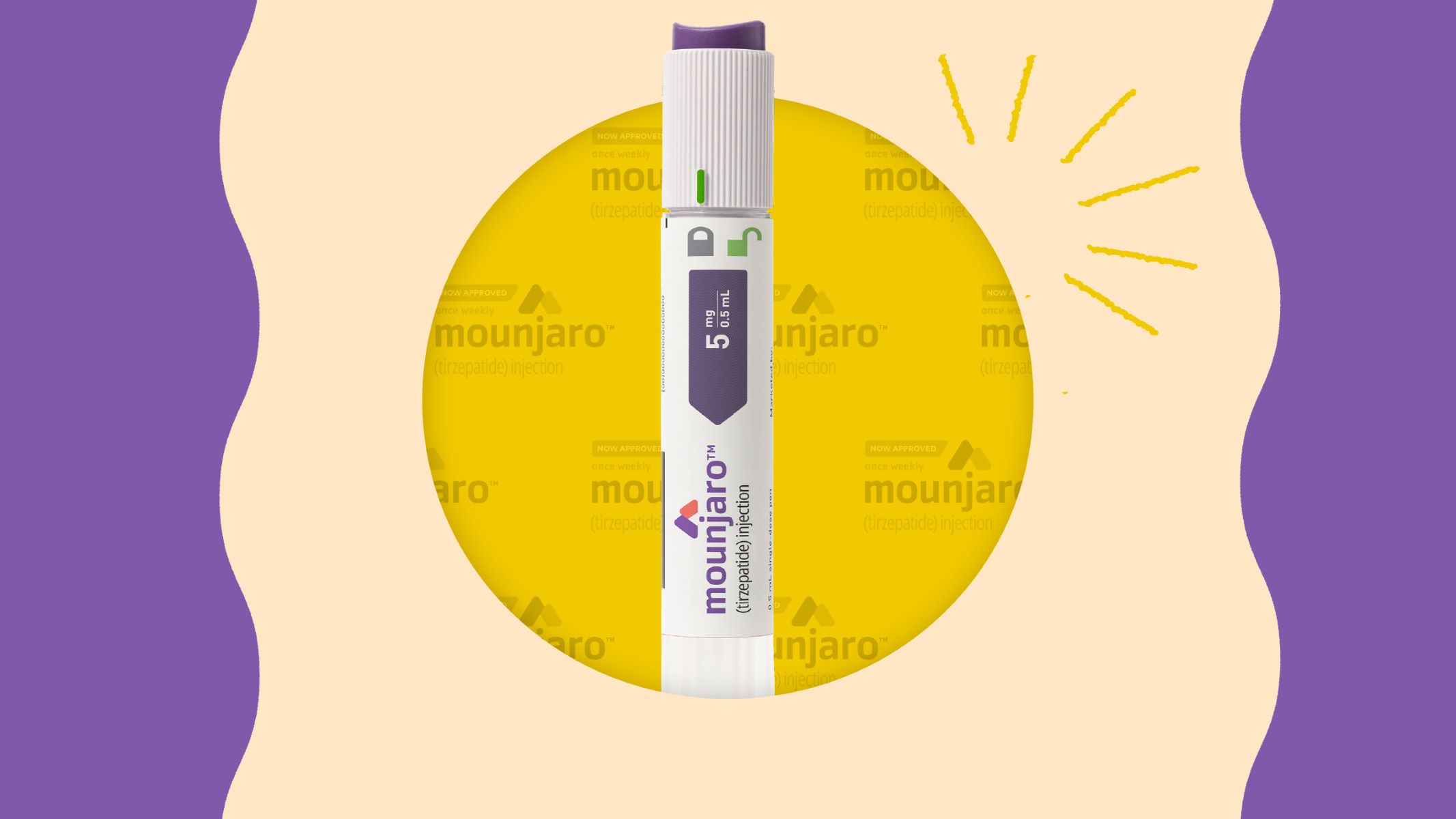Home>Finance>How To Get Insurance For Ozempic To Pay For Weight Loss


Finance
How To Get Insurance For Ozempic To Pay For Weight Loss
Published: November 22, 2023
Looking to finance your weight loss journey with Ozempic? Learn how to get insurance coverage for Ozempic to help pay for your weight loss goals and achieve a healthier lifestyle.
(Many of the links in this article redirect to a specific reviewed product. Your purchase of these products through affiliate links helps to generate commission for LiveWell, at no extra cost. Learn more)
Table of Contents
- Introduction
- Understanding Ozempic and Weight Loss
- The Importance of Insurance Coverage for Ozempic
- Steps to Get Insurance Coverage for Ozempic for Weight Loss
- Research Your Insurance Provider’s Coverage Policies for Ozempic
- Consult with Your Healthcare Provider
- Obtain Necessary Documentation and Prescriptions
- Submit a Prior Authorization Request to Your Insurance Provider
- Follow Up and Advocate for Coverage
- Explore Alternative Options if Coverage is Denied
- Conclusion
Introduction
Insurance coverage plays a crucial role in accessing necessary medical treatments and medications. For individuals looking to use Ozempic for weight loss, understanding how to navigate the insurance process can be essential. Ozempic, also known as semaglutide, is a prescription medication approved by the U.S. Food and Drug Administration (FDA) for the treatment of type 2 diabetes. However, it has also shown promising results in promoting weight loss for individuals without diabetes.
Ozempic works by mimicking the effects of a hormone called GLP-1, which helps regulate blood sugar levels and reduce appetite. Research studies have demonstrated significant weight loss among those using Ozempic, making it an attractive option for individuals struggling with obesity or overweight. However, obtaining insurance coverage for Ozempic can be a complex process, as not all insurance providers cover it for weight loss purposes.
Understanding the importance of insurance coverage for Ozempic is crucial. Without coverage, the cost of Ozempic can be prohibitively expensive, making it difficult for individuals to afford the medication. Insurance coverage not only ensures affordability but also provides access to regular healthcare monitoring and support, maximizing the chances of successful weight loss.
In this article, we will explore the steps you can take to obtain insurance coverage for Ozempic for weight loss. It is important to note that each insurance provider may have different coverage policies and requirements. Therefore, it is vital to research your specific insurance provider’s policies and consult with your healthcare provider to navigate the process effectively.
Understanding Ozempic and Weight Loss
Ozempic is a medication that belongs to a class of drugs called glucagon-like peptide-1 receptor agonists (GLP-1 RAs). It is primarily prescribed for the management of type 2 diabetes, as it helps to lower blood sugar levels. However, studies have also shown that Ozempic can aid in weight loss for individuals without diabetes.
The active ingredient in Ozempic, semaglutide, works by mimicking the effects of the GLP-1 hormone in the body. GLP-1 helps regulate blood sugar levels, suppresses appetite, and slows down the emptying of the stomach. These actions can lead to reduced calorie intake and increased feelings of fullness, resulting in weight loss.
Research trials have demonstrated the effectiveness of Ozempic for weight loss. In one study, individuals without diabetes who were taking Ozempic experienced an average weight loss of 12-14% over one year. Another study showed that compared to a placebo, Ozempic led to significant weight loss and improved metabolic health markers.
It is important to note that Ozempic should not be used solely for weight loss purposes without the guidance of a healthcare provider. It is primarily indicated for individuals with type 2 diabetes. If you are considering using Ozempic for weight loss, it is crucial to consult with your healthcare provider to determine if it is an appropriate option for you.
While many individuals have experienced positive outcomes with Ozempic for weight loss, it is essential to manage expectations. Weight loss results may vary, and it is not a magic solution. Ozempic should be used in conjunction with a healthy diet, regular exercise, and lifestyle modifications to achieve sustainable weight loss.
The Importance of Insurance Coverage for Ozempic
Having insurance coverage for Ozempic can make a significant difference for individuals seeking to use this medication for weight loss. Here are some key reasons why insurance coverage for Ozempic is important:
1. Affordability: Ozempic is a prescription medication that can be quite expensive without insurance coverage. The cost of the medication can vary depending on factors such as dosage and duration of treatment. Insurance coverage helps to mitigate these costs, making the medication more accessible and affordable for individuals.
2. Regular Monitoring and Support: When using Ozempic for weight loss, it is crucial to have regular medical monitoring and support. Insurance coverage ensures that individuals have access to healthcare professionals who can monitor their progress, provide guidance, and make any necessary adjustments to the treatment plan. This ongoing support increases the chances of achieving successful weight loss and maintaining overall health.
3. Comprehensive Healthcare Coverage: By obtaining insurance coverage for Ozempic, individuals also gain access to other healthcare benefits. This includes coverage for other necessary medications, doctor visits, laboratory tests, and other healthcare services that may be needed to support weight loss efforts. Having comprehensive coverage ensures that individuals can receive a holistic approach to their health and well-being.
4. Reduced Financial Burden: The financial burden of managing obesity or overweight can be significant. From medical expenses to potential complications associated with excess weight, the costs can quickly add up. Insurance coverage for Ozempic eases this burden by providing access to an effective weight loss medication without incurring exorbitant out-of-pocket expenses.
5. Increased Treatment Options: Insurance coverage for Ozempic expands treatment options for individuals seeking weight loss solutions. Without coverage, individuals may be limited to other interventions that may have less proven efficacy or may not be suitable for their specific needs. Having access to Ozempic through insurance coverage allows individuals to explore a treatment option that has been shown to be effective for weight loss.
It is important to note that not all insurance providers cover Ozempic for weight loss purposes. Coverage policies may vary, and some may require specific criteria to be met before approving coverage. Researching your insurance provider’s coverage policies and following the necessary steps can help enhance the likelihood of obtaining insurance coverage for Ozempic for weight loss. Consulting with your healthcare provider and advocating for coverage can also play a crucial role in navigating the process successfully.
Steps to Get Insurance Coverage for Ozempic for Weight Loss
Obtaining insurance coverage for Ozempic for weight loss can require some proactive steps. While the process may vary depending on your insurance provider, here are some general steps you can take:
- Research Your Insurance Provider’s Coverage Policies for Ozempic: Start by reviewing your insurance provider’s policies regarding coverage for Ozempic. Look for specific guidelines related to weight loss indications. This information can often be found on their website, or you can contact their customer service for clarification.
- Consult with Your Healthcare Provider: Schedule an appointment with your healthcare provider, such as a primary care physician or endocrinologist, to discuss your interest in using Ozempic for weight loss. They can evaluate your medical history, assess your eligibility, and provide necessary documentation to support your insurance claim.
- Obtain Necessary Documentation and Prescriptions: Your healthcare provider may need to provide documentation to support your insurance claim. This can include medical records, a letter of medical necessity, or a prescription for Ozempic. Ensure that you have all the required documentation to submit to your insurance provider.
- Submit a Prior Authorization Request to Your Insurance Provider: Some insurance providers may require a prior authorization request for Ozempic. This process involves submitting the necessary documentation, prescriptions, and any additional information required by your insurance provider. The prior authorization request allows your insurance provider to review the medical necessity of Ozempic for your weight loss goals.
- Follow Up and Advocate for Coverage: After submitting the prior authorization request, it is important to follow up with your insurance provider. Stay proactive and inquire about the progress of your request. If there are any issues or delays, advocate for your coverage by providing additional information or documentation as needed. Persistence and effective communication can help increase your chances of obtaining insurance coverage for Ozempic.
- Explore Alternative Options if Coverage is Denied: In some cases, insurance providers may deny coverage for Ozempic for weight loss. If this happens, don’t lose hope. There may be alternative avenues to explore, such as appealing the denial or seeking assistance from patient advocacy organizations. Your healthcare provider can guide you on the best course of action to navigate this situation.
Remember, the process of obtaining insurance coverage for Ozempic for weight loss can vary depending on your insurance provider’s policies. It is important to stay informed, consult with your healthcare provider, and be proactive in advocating for coverage. By taking these steps, you can increase your chances of accessing this beneficial medication for weight loss.
Research Your Insurance Provider’s Coverage Policies for Ozempic
The first step in obtaining insurance coverage for Ozempic for weight loss is to research your insurance provider’s coverage policies. Every insurance company may have different guidelines and criteria for covering prescription medications like Ozempic. By understanding your insurance provider’s policies, you can determine the specific requirements and documentation needed to maximize your chances of getting coverage.
Start by visiting your insurance provider’s website and searching for their formulary or drug coverage list. Look for the specific information related to Ozempic and weight loss indications. This will give you an idea of whether Ozempic is covered under your insurance plan for weight loss purposes.
If you are unable to find the information on the website, contact your insurance provider’s customer service department. They can provide you with detailed information about the coverage policies for Ozempic and any additional requirements or documentation needed for weight loss purposes.
Pay attention to any restrictions or limitations on coverage. Some insurance providers may require prior authorization, meaning you need to get approval before they cover the medication. They may also have specific criteria such as a minimum body mass index (BMI) or the presence of certain comorbidities before providing coverage.
Understanding your insurance provider’s coverage policies will help you navigate the process more effectively. It allows you to gather the necessary information, documentation, and support from your healthcare provider to meet the criteria set by your insurance provider. This research will also help you anticipate any potential challenges or requirements that may arise during the insurance coverage process.
Remember to keep a record of any information you gather during your research. This will serve as a valuable resource throughout the coverage process and any potential appeals if coverage is initially denied. Being well-informed will help you advocate for yourself and ensure that you have the best possible chance of obtaining insurance coverage for Ozempic for weight loss.
Consult with Your Healthcare Provider
Once you have researched your insurance provider’s coverage policies for Ozempic, the next step in obtaining insurance coverage for weight loss is to consult with your healthcare provider. Your healthcare provider, such as a primary care physician or endocrinologist, plays a crucial role in assessing your eligibility for Ozempic and can provide the necessary documentation to support your insurance claim.
Schedule an appointment with your healthcare provider to discuss your interest in using Ozempic for weight loss. During the appointment, be prepared to provide details about your weight loss goals, any previous weight loss attempts, and any relevant medical information. This will help your healthcare provider evaluate whether Ozempic is a suitable option for you.
Your healthcare provider will review your medical history, current medications, and any underlying health conditions to determine if Ozempic is safe and appropriate for you. They will also assess your weight, body mass index (BMI), and overall health to determine if you meet any specific criteria set by your insurance provider.
If your healthcare provider deems Ozempic to be a potential solution for your weight loss goals, they can provide the necessary documentation to support your insurance claim. This may include a letter of medical necessity, detailing why Ozempic is medically necessary for your weight loss journey.
During your consultation, take the opportunity to ask any questions you may have about Ozempic, its potential side effects, or its efficacy for weight loss. Your healthcare provider can provide you with valuable information, guidance, and recommendations to help you make an informed decision.
Working closely with your healthcare provider is essential to ensure that you have the necessary support and medical documentation to present to your insurance provider. They will be able to guide you through the process, providing the information needed to maximize your chances of obtaining insurance coverage for Ozempic for weight loss.
Obtain Necessary Documentation and Prescriptions
Once you have consulted with your healthcare provider and determined that Ozempic is a viable option for your weight loss journey, the next step is to obtain the necessary documentation and prescriptions to support your insurance claim. This documentation will help demonstrate the medical necessity of Ozempic for your weight loss goals.
Work with your healthcare provider to gather the required documentation. This may include medical records, previous weight loss attempts, documentation of comorbidities related to obesity, and any other relevant information that supports your need for Ozempic. Your healthcare provider’s expertise and input are crucial here, as they can provide the necessary information specific to your individual case.
In addition to obtaining documentation, your healthcare provider will also need to write a prescription for Ozempic. This prescription will specify the dosage, duration of treatment, and any other pertinent instructions. Make sure to discuss any concerns or questions you may have with your healthcare provider before obtaining the prescription.
Once you have the necessary documentation and prescription, ensure that everything is properly labeled and securely stored. Keep copies of all the documents for your own records. These documents will be crucial when submitting a prior authorization request to your insurance provider.
If you are unsure about any of the documentation or prescription requirements, don’t hesitate to reach out to your healthcare provider for clarification. They can provide guidance and ensure that you have everything you need to move forward with the insurance coverage process smoothly.
Remember, different insurance providers may have specific requirements for the documentation and prescriptions needed for Ozempic coverage. Stay informed about your insurance provider’s policies to ensure that you have all the necessary paperwork in order to maximize your chances of getting insurance coverage for Ozempic for weight loss.
Submit a Prior Authorization Request to Your Insurance Provider
Once you have gathered all the necessary documentation and prescriptions, the next step in obtaining insurance coverage for Ozempic for weight loss is to submit a prior authorization request to your insurance provider. A prior authorization is a process where your healthcare provider provides detailed information to the insurance company, explaining why Ozempic is medically necessary for your weight loss goals.
Start by contacting your insurance provider to inquire about their prior authorization process for Ozempic. They will provide you with the necessary forms and instructions on how to submit your request. It is essential to follow their guidelines carefully to ensure that your request is processed efficiently.
Fill out the prior authorization form accurately and completely, providing all the required information. Attach the supporting documentation, including the letter of medical necessity and any other relevant medical records or documentation recommended by your healthcare provider.
Ensure that you include your personal information, insurance details, and any identification numbers required by your insurance provider. Double-check that all the information is correct and up-to-date to avoid any delays or issues with your request.
Submit the prior authorization request either online, by mail, or through the designated method specified by your insurance provider. Keep track of the submission date and make note of any confirmation numbers or receipts for future reference.
After submitting the prior authorization request, it is essential to follow up with your insurance provider. Contact their customer service department to inquire about the status of your request. You may need to provide additional information or clarification if requested by the insurance company.
Stay proactive and advocate for your coverage throughout the process. If there are any delays or challenges with your prior authorization request, communicate with your healthcare provider for assistance in obtaining the necessary information or making the case for medical necessity.
Remember that the prior authorization process may take some time, so it is crucial to start the process well in advance of when you need to begin using Ozempic. Patience and persistence are key when navigating the prior authorization process.
By submitting a prior authorization request, you are providing your insurance provider with all the essential information needed to evaluate the medical necessity of Ozempic for your weight loss goals. Adequately preparing and staying engaged throughout the process will enhance your chances of obtaining insurance coverage for Ozempic.
Follow Up and Advocate for Coverage
After submitting the prior authorization request for Ozempic coverage, it is important to follow up and advocate for your coverage. This step is critical in ensuring that your request is reviewed and processed in a timely manner.
Start by contacting your insurance provider to inquire about the status of your prior authorization request. Keep a record of the date and time of your call, as well as the name of the representative you speak with. This information will be helpful for future reference and follow-up.
During your follow-up communication, ask if any additional information or documentation is needed. Your insurance provider may require further details to support your claim. If this is the case, promptly provide the requested information to avoid any unnecessary delays.
If your insurance provider denies your prior authorization request, don’t be discouraged. Take the time to understand the reason for the denial. Ask for a detailed explanation and any specific criteria that were not met. This information will help you determine the appropriate steps to take next.
If you believe that the denial was made in error or if you have additional information that supports the medical necessity of Ozempic for your weight loss, consider filing an appeal. Most insurance providers have an appeals process that allows you to challenge their decision.
Consult with your healthcare provider for guidance on how to proceed with the appeals process. They can provide you with any additional documentation or support needed to strengthen your case. Follow the specific instructions provided by your insurance provider for filing an appeal and submit all necessary documentation within the designated timeframe.
When advocating for coverage, it is essential to be persistent and assertive. Keep records of all communication, including phone calls, emails, and letters related to your coverage request and any subsequent appeals. Documenting your interactions will help you maintain a clear timeline and provide a paper trail if needed.
Consider seeking support from patient advocacy organizations or support groups that specialize in insurance coverage issues. They may be able to provide advice, resources, and support throughout the process.
Remember, advocating for coverage requires patience and perseverance. It may take time and effort to navigate the appeals process, but your determination can pay off in successfully obtaining insurance coverage for Ozempic for weight loss.
Explore Alternative Options if Coverage is Denied
In the event that your insurance provider denies your prior authorization request for Ozempic coverage, don’t lose hope. There may still be alternative options available to you. Here are some steps you can take if coverage is initially denied:
1. Review the Denial Explanation: Carefully examine the denial explanation provided by your insurance provider. Understand the specific reasons for the denial, such as lack of medical necessity or failure to meet certain criteria. This information will help guide your next steps.
2. Consult with Your Healthcare Provider: Reach out to your healthcare provider and discuss the denial. They can offer insights and guidance on potential next steps. Your healthcare provider may be able to provide additional documentation or alternative treatment options that can support your weight loss goals.
3. Consider an Appeal: If you believe that the denial was made in error or if you have additional supporting information, you may choose to file an appeal. Follow your insurance provider’s appeals process and submit any necessary documentation within the designated timeframe. Your healthcare provider can assist you in drafting an appeal letter that highlights the medical necessity of Ozempic for your weight loss.
4. Seek Assistance from Patient Advocacy Organizations: Reach out to patient advocacy organizations or support groups that specialize in insurance coverage issues. They can provide advice, resources, and support throughout the appeals process. These organizations often have experience dealing with insurance denials and can offer valuable insights and strategies for navigating the system.
5. Explore Patient Assistance Programs: Look into patient assistance programs offered by the manufacturer of Ozempic. These programs are designed to help individuals who face financial challenges in accessing their medications. Through patient assistance programs, you may be eligible for discounted or free medications. Your healthcare provider can provide information on the availability of such programs and assist you in applying.
6. Consider Alternative Treatment Options: If obtaining insurance coverage for Ozempic proves challenging, discuss alternative weight loss treatment options with your healthcare provider. They can help explore other medications or interventions that may be covered by your insurance or are more affordable for you.
Remember, exploring alternative options requires open communication with your healthcare provider. They will be able to guide you based on their knowledge and expertise. Persist in advocating for yourself and pursuing all available avenues to ensure you receive appropriate and effective treatment for your weight loss goals.
Conclusion
Obtaining insurance coverage for Ozempic for weight loss can be a complex process, but with the right knowledge and proactive steps, it is possible to navigate the system successfully. Insurance coverage for Ozempic is crucial, as it ensures affordability, access to regular monitoring and support, and expands treatment options for individuals seeking effective weight loss solutions.
By following the steps outlined in this article, you can increase your chances of obtaining insurance coverage for Ozempic:
- Research your insurance provider’s coverage policies for Ozempic to understand the specific requirements and criteria.
- Consult with your healthcare provider to determine if Ozempic is an appropriate option for your weight loss goals and obtain the necessary documentation and prescriptions.
- Submit a prior authorization request to your insurance provider, including all required documentation and support from your healthcare provider.
- Follow up with your insurance provider and advocate for coverage, addressing any issues or providing additional information as needed.
- If coverage is initially denied, explore the appeals process and seek assistance from patient advocacy organizations.
- If coverage remains unattainable, consider alternative options such as patient assistance programs or exploring other treatment options with your healthcare provider.
Remember, each insurance provider may have different coverage policies and requirements, so it is essential to research and consult with your specific provider. Your healthcare provider will be your ally throughout this process, providing guidance and support in advocating for coverage.
While navigating insurance coverage can be challenging, maintaining an open line of communication and advocating for yourself can greatly improve your chances of accessing Ozempic for weight loss. Stay persistent, informed, and proactive in your approach, and with determination, you can achieve your weight loss goals with insurance coverage for Ozempic.














